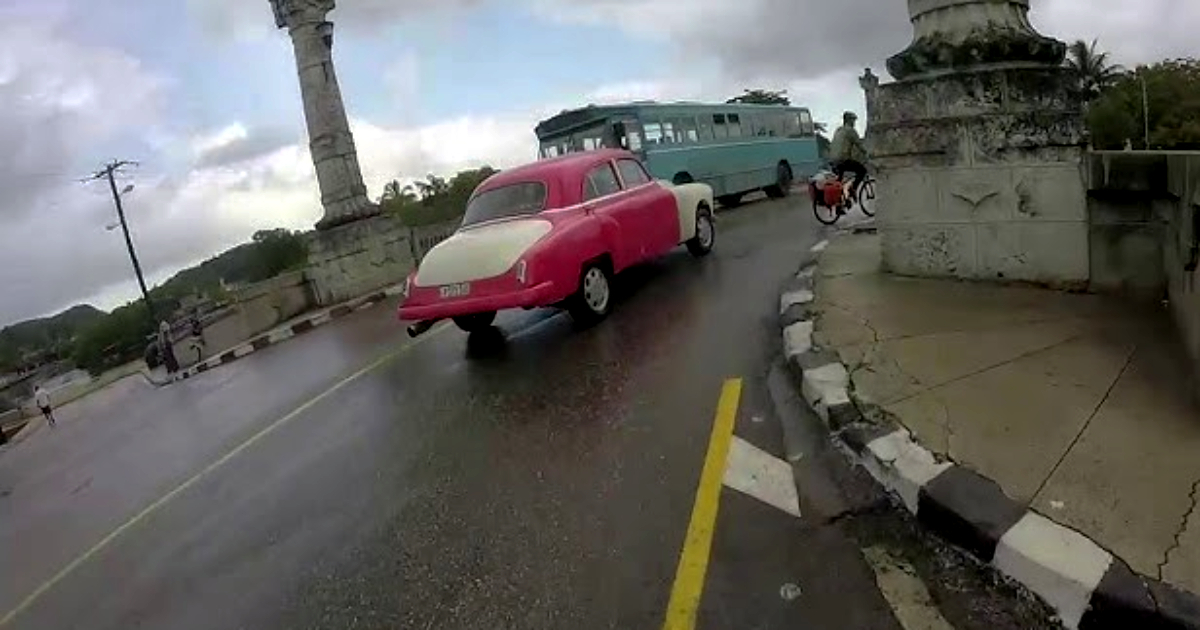
Related videos:
In light of the critical transportation situation in Matanzas, the authorities have decided to relaunch the "solidarity transport" program, an initiative that requires drivers of state and business vehicles to support citizen mobility during key hours.
The measure, announced during the Work Review of the Provincial Transport Directorate on February 1st, addresses the need to relieve the high demand and improve accessibility on priority routes, and will come into effect starting this Monday, February 24th.
The meeting was attended by the Minister of Transport, Eduardo Rodríguez Dávila, the member of the Party Bureau, Norma Llerena, and the government coordinator, Anisley Fuentes Crespo, who discussed strategies to optimize transportation in the province.
According to the official Periódico Girón, it was agreed at the meeting that various public entities will provide resources and units to ensure mobility in the most affected urban corridors.
The "solidarity transport," initially implemented in 2023, faced difficulties due to a lack of coordination and control, authorities stated.
However, they assured that in this new stage, the supervision mechanisms will be reinforced to ensure proper functioning and prevent irregularities. To this end, the telephone numbers 45 261593 and 52809331 have been made available, where the public can report complaints and suggestions.
Matanzas faces a serious mobility crisis due to the aging of its transportation fleet and an inadequate number of vehicles to meet demand. Initially, strategic routes such as Vía Blanca will benefit from this measure, which aims to alleviate the difficulties faced by the sector, according to its officials.
Routes and dates of the solidarity transport
The program will operate on a weekly schedule, with different entities taking responsibility for transporting passengers on specific routes. Below are some of the established routes:
1. Peñas Altas Park - Provincial Hospital Commander Faustino Pérez
- - Monday: Matanzas Trasmetro, Provincial Directorate of Transport, and Varadero International Airport.
- - Tuesday: Granma Plant.
- - Wednesday: TaxisCuba Matanzas.
- - Thursday: EMPA.
- - Friday: Provincial Health.
2. La Estrella Park (Market Square) - Stop at Reparto Armando Mestre (El Naranjal)
- - Monday: Provincial Transport Company.
- - Tuesday: ECOMAVI (Road Company).
- - Wednesday: MCV (Mercedes Benz).
- - Thursday: Water and Sewer Company.
- - Friday: RadioCuba.
3. Cathedral Square - Maternity Hospital (Versailles)
- - Monday: Camping and Culture.
- - Tuesday: CUPET Marketing Company and Provincial Pharmacy and Optics Company.
- - Wednesday: Provincial Directorate of Justice.
- Thursday: EMBER and Economy and Planning.
- - Friday: EDESCON.
4. Livestock - Goicuría School Center (Versailles)
- - Monday: EMCOMED.
- - Tuesday: Rayonitro.
- - Wednesday: Port.
- - Thursday: EMSERPEP.
- - Friday: EMPAI.
5. José Luis Dubroq Pre-University - Comandante Faustino Pérez Provincial Hospital
- - Monday: People's Power Construction Company.
- - Tuesday: Fishing Company.
- - Wednesday: Business Group of Commerce.
- - Thursday: Gardis Business Group.
- - Friday: Provincial Housing Authority.
The program also includes additional routes such as the Provincial Bus Terminal to Parque Peñas Altas, the Cathedral Park to Parque Peñas Altas, the University of Matanzas, and other key connections within the city.
The crisis of public transportation in Cuba
The transportation crisis in Cuba has been a persistent issue in recent years, severely impacting the population's mobility.
In July 2024, the government acknowledged that more than half of the provincial routes were paralyzed, with 52% inactivity in transportation companies, and operational routes limited to one trip in the morning and another in the afternoon.
The situation has worsened due to the energy crisis facing the country. In February 2025, the halt of national transport as a consequence of the electricity deficit was reported, affecting 56% of the demand, leading to blackouts and fuel shortages.
Although Rodríguez Dávila denied rumors of a complete halt to interprovincial transportation, he admitted that the services were operating with limitations and delays due to technical and logistical issues.
In the capital, the situation is no different. Havana has faced multiple challenges in its public transportation system, including the breakdown of the only ferry in service that covered the route between the city and the municipality of Regla, leaving hundreds of passengers without this essential means of transport.
Additionally, the introduction of electric tricycles as an alternative has been limited, as these lightweight vehicles do not operate during peak hours due to battery capacity restrictions.
Filed under: